Johns Hopkins University was inducted as an institutional member of the Edward Alexander Bouchet Graduate Honor Society in April 2018. Named for the first African American in the United States to receive a PhD, the Edward A. Bouchet Graduate Honor Society seeks to develop a network of pre-eminent scholars who exemplify academic and personal excellence, foster environments of support, and serve as examples of scholarship, leadership, character, service, and advocacy for students and trainees who traditionally have been underrepresented in higher education. It was co-founded in 2005 by Yale University—where Bouchet, a physicist and educator, earned his doctorate in 1876—and Howard University to recognize and continue Bouchet’s pioneering contributions to doctoral education.
PhD Students: All PhD students who will advance to Candidacy, or are All But Dissertation (ABD) by January 1, 2024 are eligible to nominate themselves for consideration as inductees. Candidacy, or All But Dissertation, means that the student has finished all required coursework and passed all required qualifying and preliminary exams, and is working on the dissertation research itself.
Postdoctoral Fellows: Postdoctoral research fellows who have a PhD degree and who are JHU postdocs or whose JHU postdoctoral appointment will start no later than January 1, 2024 are eligible to apply. Residents and subspecialty clinical fellows in Accreditation Council for Graduate Medical Education (“ACGME”)-accredited or ACGME-equivalent programs are not eligible.
These self-nominations included the following:
Inductees are expected to attend the JHU Induction Ceremony (Baltimore) and the Annual Bouchet Conference (New Haven).
If you have questions, please contact: vpgraduateeducation@jhu.edu.
Franklin J. Avilés-Vázquez
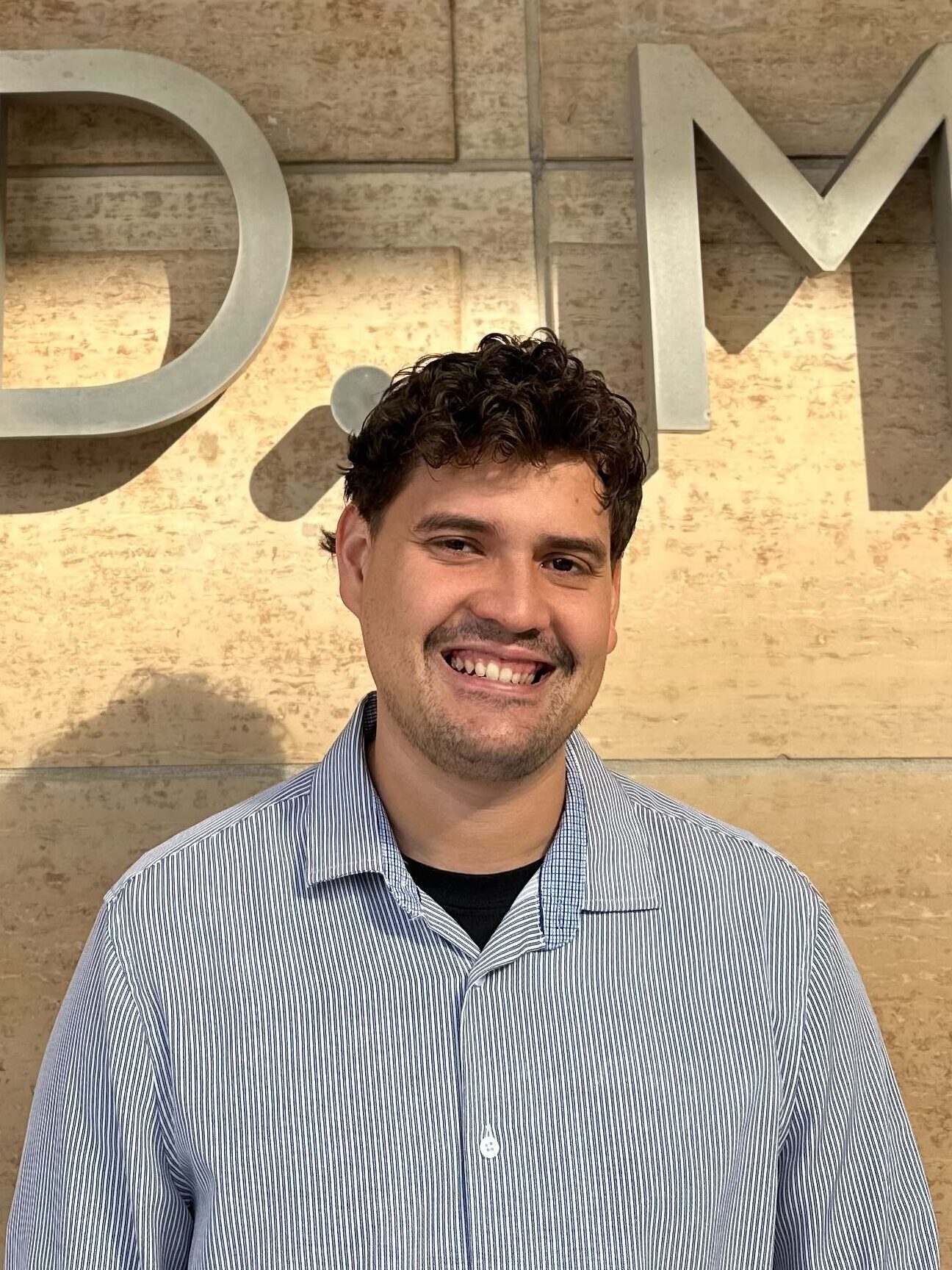
Biophysics
Franklin J. Avilés-Vázquez is a graduate student pursuing his Ph.D. in Biophysics at Johns Hopkins University. He holds a bachelor’s degree in Chemistry from the University of Puerto Rico, Rio Piedras campus. Franklin’s research focuses on understanding the molecular mechanisms of cohesin and DNA repair proteins after DNA damage. During the pandemic, knowing about the significant gaps in education and the difficulties arising in his hometown in Puerto Rico, he cofounded, along with Dr. Claudio, the COVID-19 Coalition of Wisdom of Puerto Rico (COSACO). In a matter of weeks, COSACO became a leading educational resource for the scientific and non-scientific community, where Franklin, as an executive director, organized more than fifteen scientific seminars on COVID-19 and over 200 5-minute informative capsules through local TV channels, reaching over 300,000 Puerto Ricans.
Throughout his academic journey, Franklin has received several awards and scholarships for his academic achievements, including the Francis D. “Spike” Carlson fellowship and an Honorable Mention in the 2021 National Science Foundation (NSF) Graduate Research Fellowship Program (GRFP). He has mentored undergraduate and graduate students through programs at Hopkins and led and organized events that advocate for diversity and inclusion in the scientific community. As a Ph.D. candidate, Franklin will continue his scientific pursuits, make significant contributions to DEI, and be committed to serving society through science. He is confident that his passion for science, dedication, and hard work will help him achieve his long-term career goals and positively impact the scientific community.
Briana S. Bostic

Education
Briana S. Bostic is a candidate for the Ph.D. in education at The Johns Hopkins University. Her research at the School of Education and within the Well-being for Early Learning Lab focuses on teacher well-being, the availability of early care educators’ resources across geographic contexts, and children’s development (social, emotional, behavioral). Briana has been recognized as a Children’s Equity Project Start with Equity Fellow. As part of this fellowship, she was a policy intern at the Administration for Children and Families’ Office of Early Childhood Development. Briana has also received the Jeffrey A. Grigg Award for excellence in research in Baltimore, supported by her involvement in the Baltimore Early Childhood Advocacy Council. Also, she earned a Bachelor of Arts in economics and anthropology from Washington University in St. Louis, where she received the Excellence in Anthropology Research Award from the Department of Anthropology. Briana taught preschoolers in Chicago, where she earned a Master of Science in Education from Dominican University, specializing in early childhood education. Briana is a writer. She loves community organizing and has volunteered with neighbors in St. Louis, Chicago, Baltimore, and Prince George’s County (MD) to advocate for better social infrastructure and preservation of community. Fundamentally, Briana seeks to grow in her scholarship and has been inspired by her relationships to understand how dynamic communities can be nourishing and sustainable.
Lois Dankwa
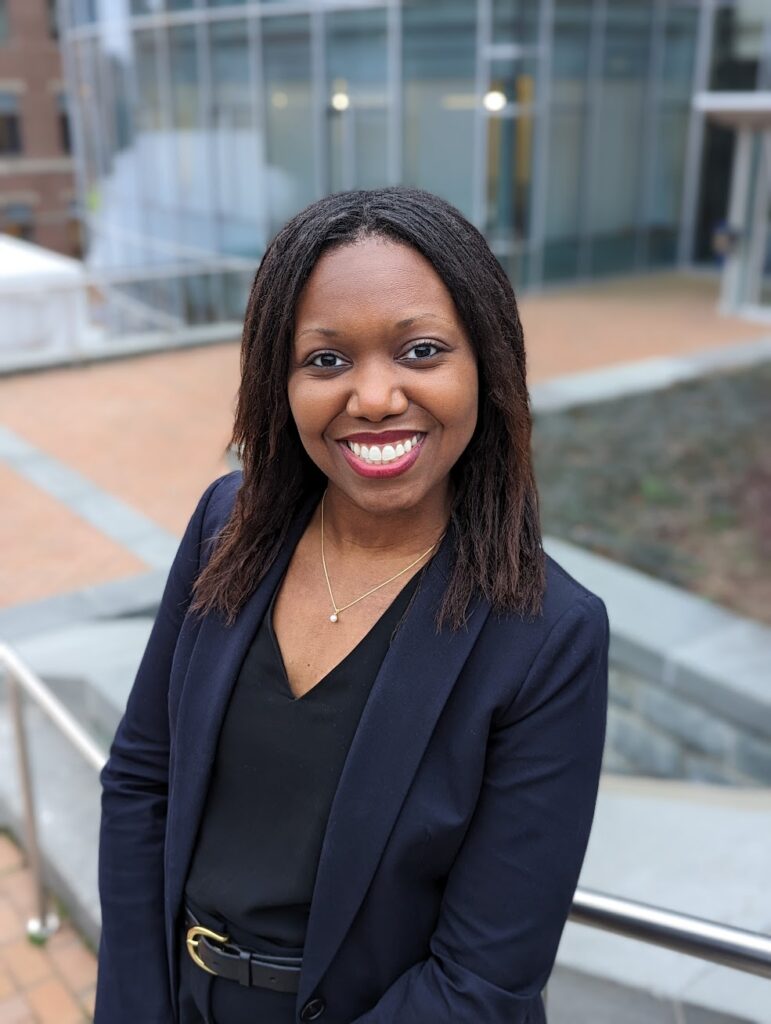
Health Policy and Management
Lois Dankwa is a Ph.D. candidate in Health Policy and Management at the Johns Hopkins Bloomberg School of Public Health (BSPH). Her research interests include cross-sector collaboration and care management in underserved communities for individuals experiencing chronic illness and complex social challenges. Her work explores teamwork and collaborative decision-making related to health behavior, organizational structure and development, and strategic management. Prior to Hopkins, Lois developed and ran public opinion research to identify people’s needs and experiences within the health care system to inform people-centered policy design; she also conducted clinical research to examine biological factors on patients’ health outcomes. Lois received her M.S. in Health and the Public Interest from Georgetown University and B.A. in Psychology from the University of Pennsylvania.
As a current C. Sylvia and Eddie C. Brown Community Health Scholar, Lois is committed to serving as a connector of people, information, and resources, and hopes that her research will amplify meaningful solutions to gaps in health services. In 2022, she was one of two inaugural awardees for the Institute for Health and Social Policy BSPH Student and Trainee Policy Impact Award. Additionally, from 2020 to 2022, Lois served as the BSPH AcademyHealth Chapter President, and currently serves on the Academy of Management’s Student Engagement Committee and the Diversity, Equity, and Inclusion Taskforce in the Health Care Management Division. Through her career, Lois hopes to contribute to care management transformation that will ultimately reduce health disparities and improve overall population health.
Franklyn D. Hall III
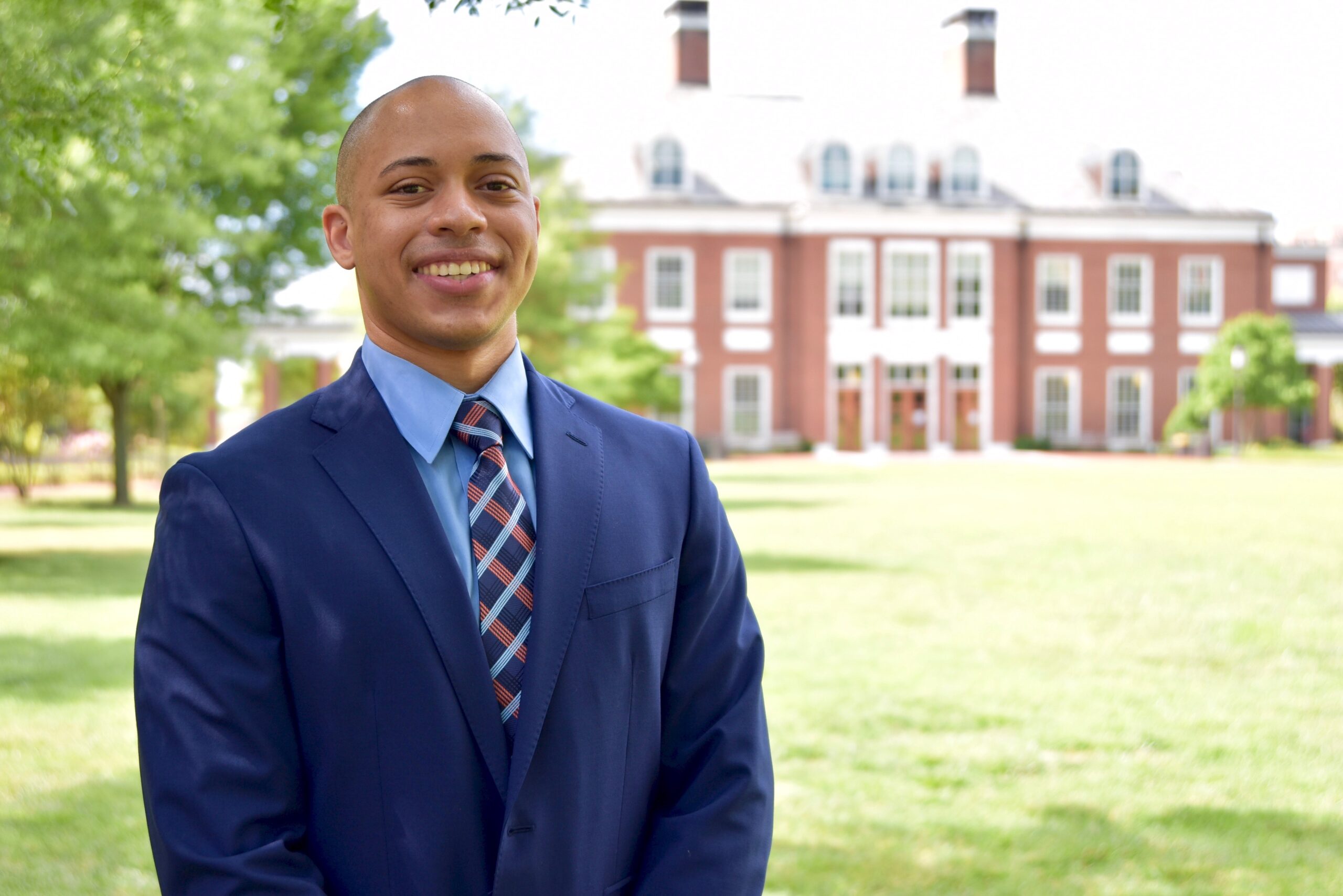
Biomedical Engineering
Franklyn D. Hall III is a candidate for a Ph.D. in Biomedical Engineering at the Johns Hopkins School of Medicine. Franklyn received his Bachelor of Science in chemical engineering with a biomolecular concentration from Mississippi State University. His dissertation research is focused on using vascular cells derived from stem cells obtained from patients with Marfan Syndrome (MFS) to understand new mechanisms of disease progression. In pursuit of his research goals, Franklyn received the Howard Hughes Medical Institute Gilliams Fellowship and National Institutes of Health Ruth L. Kirschstein Predoctoral Award (F31) to support his work. Outside of research Franklyn enjoys engaging with undergraduate students through teaching and mentorship. He recently co-wrote a course entitled “Food of the Future” which explores how microbiology, genetic and stem cell engineering are fueling emerging solutions to the global climate, animal welfare, and food scarcity challenges of today. Franklyn believes service to his fellow graduate students has been the source of some of the most rewarding and enjoyable experiences in his graduate school journey. He was particularly excited about three initiatives he designed including programming for assisting minority graduate students in learning self-promotion techniques through identifier and social media platforms, a roundtable/networking event between Black faculty and students to discuss race-based challenges in academia, and the first black graduate student retreat aimed at creating a space for community-building and recovery from pandemic-induced stressors. In the future, Franklyn will continue studying how physiologically relevant 3D cellular models can be used to study disease and identify potential therapeutics.
Michael Hopkins
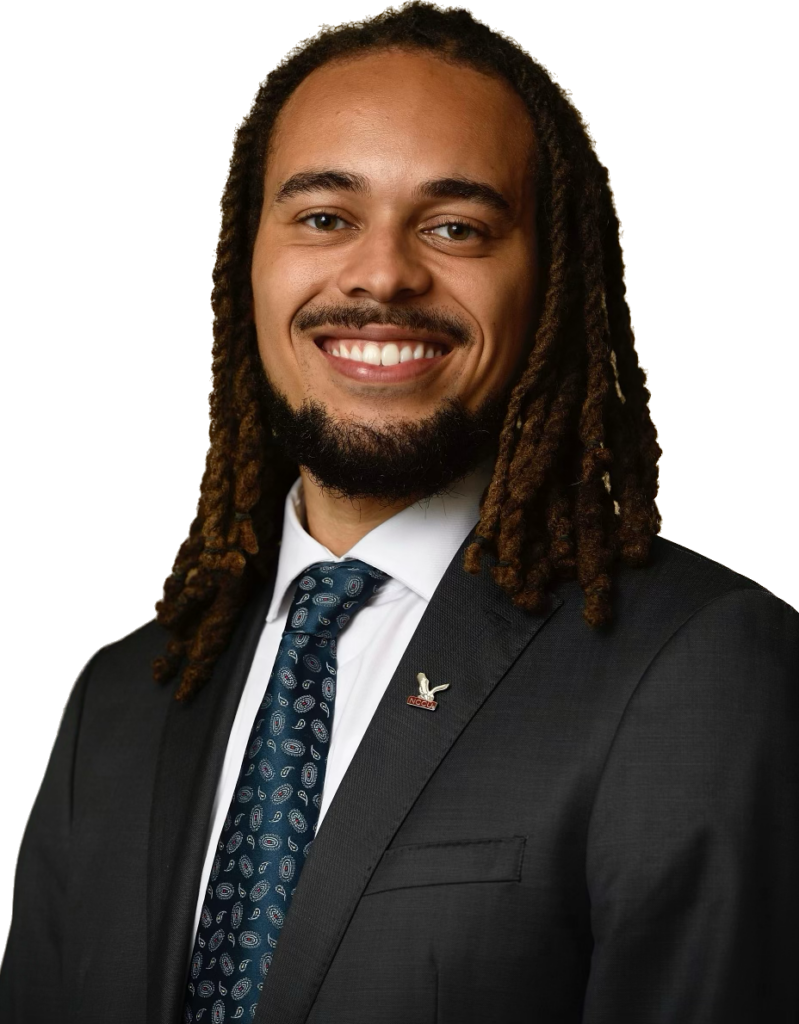
Biochemistry Cellular Molecular Biology
Michael is a 5th year Ph.D. candidate in the department of biological chemistry at the Johns Hopkins School of Medicine. His research focuses on elucidating the molecular mechanisms underlying stress granule condensate formation during proteasome-mediated stress responses using biochemistry and microscopy techniques. Proteasome-mediated degradation is impaired during neurodegenerative disease pathophysiology and stress granules are the molecular precursor for protein aggregates, therefore this work could have important implications for neurodegenerative disease etiology. Michael’s thesis work is supported by the National Science Foundation Graduate Research Fellowship, the Howard Hughes Medical Institute Gilliam Fellowship, and the Society for Neuroscience Neuroscience Scholars Program. At Johns Hopkins, Michael has been involved in on campus diversity, equity, and inclusion efforts through the Biomedical Scholars Association, including serving as the director of social engagement for the past 2 years where his job is to support the recruitment and retention of minority students through innovative social programming. Prior to his matriculation to graduate school, Michael graduated Summa Cum Laude from North Carolina Central University with a degree in pharmaceutical science where he was actively involved in student leadership positions including serving as Student Government Association President and as a member of the university Board of Trustees. After graduation Michael plans to pursue a career at the intersection of science, business, and policy, leveraging the power of biomedical research to improve his community.
Deja Knight
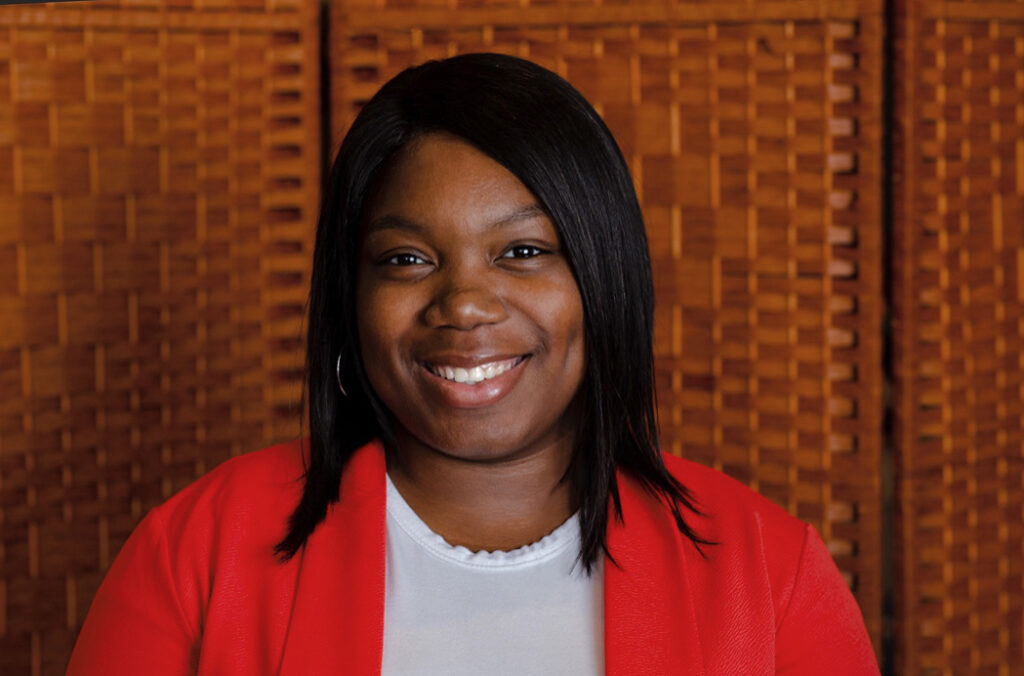
Social and Behavioral Interventions
Deja received her MPH from Harvard T.H. Chan School of Public Health, where she served as an Equity, Diversity, and Inclusion Fellow in the Office of Diversity and Inclusion. She received her MA from the University of Iowa in the Psychological and Brain Sciences Department, with a concentration in Behavioral and Cognitive Neurosciences, where she co-found and co-direct Our Collective Brains (OCB), an organization that aimed to help first-generation and minority students excel academically. Deja received her BA from Wesleyan University, where she was a Ronald E. McNair Post-Baccalaureate Achievement Program Fellow and a QuestBridge Scholar. Deja is a Section Counselor in the Community Health Planning and Policy Development Section of the American Public Health Association. Ultimately, Deja is passionate about addressing health disparities through research and advocacy.
Alexis N. Peña
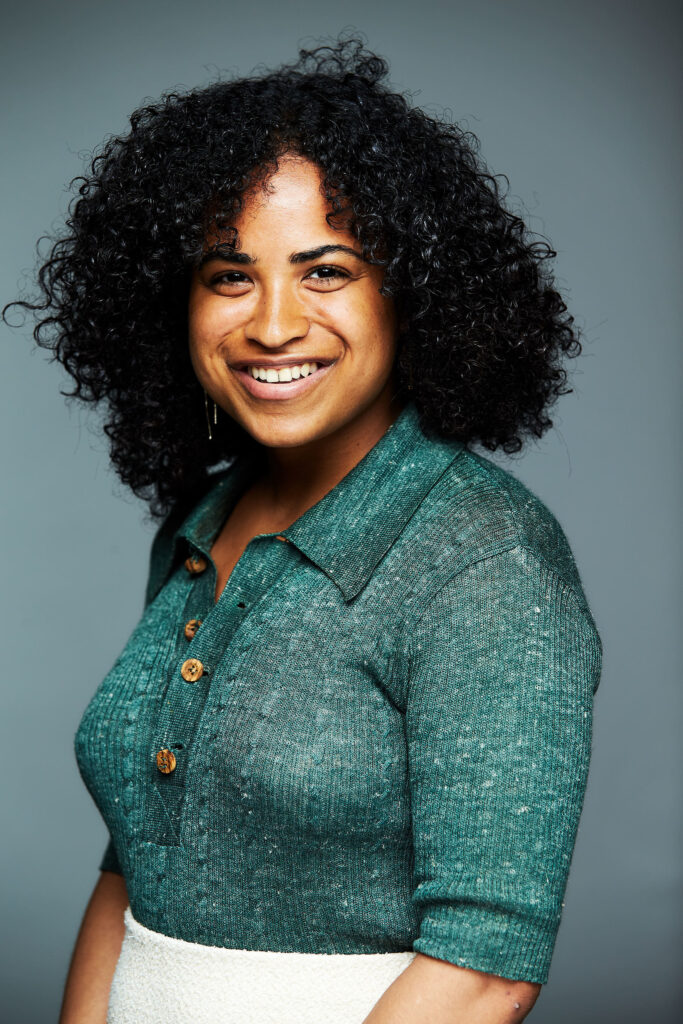
Biomedical Engineering
Alexis N. Peña is a Ph.D. Candidate in Biomedical Engineering at the Johns Hopkins University with a focus on Translational Cell & Tissue Engineering. She is in Dr. Jennifer Elisseeff’s lab where they target the immune system to make healthy tissues. Alexis researches human cell/tissue products for musculoskeletal injuries and disease. Tissue- and blood-based biomaterials are a class of regenerative medicine technologies that have shown great clinical promise in promoting tissue regeneration through mechanisms of immune modulation. She is a member of the Alpha Eta Mu Beta Biomedical Engineering Honor Society and a GEM Associate Fellow. She was awarded the National Science Foundation Graduate Research Fellowship (NSF-GRFP). Her north star is to improve health outcomes and improve quality of life. She recognizes that there must be a holistic approach to healthcare that involve innovations for acute care and for lifestyle and behavioral interventions to manage and mitigate chronic diseases. To establish deeper competency in food and nutrition, she completed a graduate certificate from Johns Hopkins School of Public Health in food systems. She received a Bachelor of Science in Bioengineering at Syracuse University, where she was a Ronald E. McNair and LSAMP scholar. During her undergraduate and graduate training Alexis has been committed to being of service by volunteering, mentoring, serving on committees and panels, and supporting local businesses. To date, she has co-authored 9 publications spanning regenerative medicine strategies and in vitro cell platforms to ultimately provide tissue engineering and regenerative medicine solutions.
Oscar E. Reyes Gaido
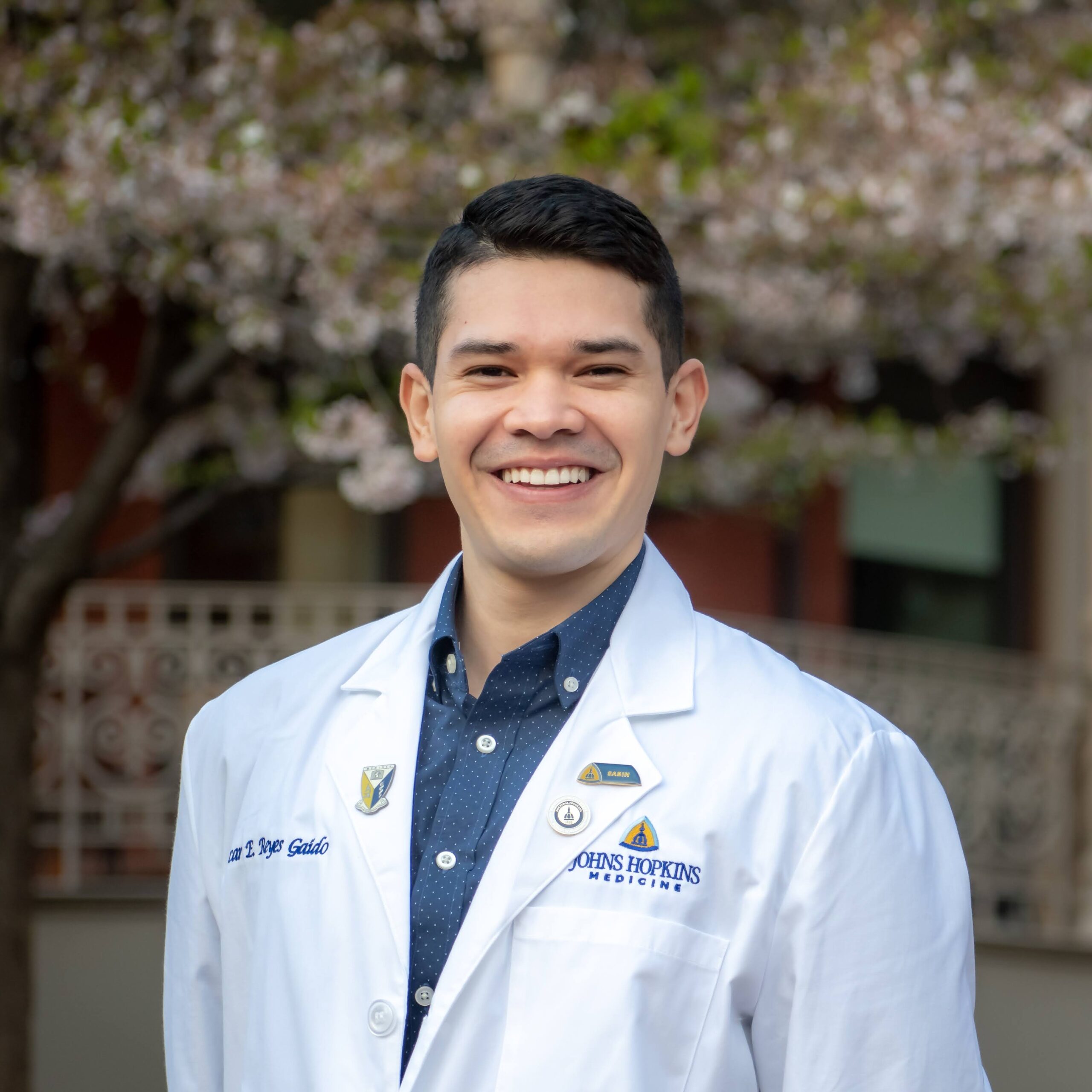
Cellular & Molecular Medicine
Oscar E. Reyes Gaido is an MD-PhD candidate within the Cellular & Molecular Medicine and Medical Scientist Training Programs at the Johns Hopkins University School of Medicine. His research focuses on leveraging kinase biosensors for the development of cardiovascular therapies. For this work, Oscar has been recognized with a predoctoral fellowship from the American Heart Association, the JHU Graduate Student Association Scientific Presentation Award, and was named a finalist of the JHU 3-Minute Thesis competition. He received his Bachelor of Science degree from Johns Hopkins University, where he was the sole recipient of the Lee Award for Outstanding Undergraduate Research for his work on dietary cholesterol metabolism. Oscar has served his Baltimore community under many roles including as a medical interpreter, sex-ed teacher, family planning counselor, and as liaison between the Latino community and local government. He is a founder of Latino Leaders in Training, a mentoring organization which pairs underrepresented Baltimore students with medical students and has successfully guided dozens of trainees into STEM careers. Oscar has served a national advocacy role through his position as regional community service chair for the American Medical Association, where he has lobbied for increases to mental health and financial support to marginalized trainees. For these efforts, he was awarded the Paul S. Lietman Johns Hopkins International Scholarship and the JHU Diversity Leadership Award. Oscar is eager to continue his career at the crossroads of science and medicine—aiming to develop therapeutics for the conditions that disproportionally afflict underserved communities.
Jonathan J. Suen
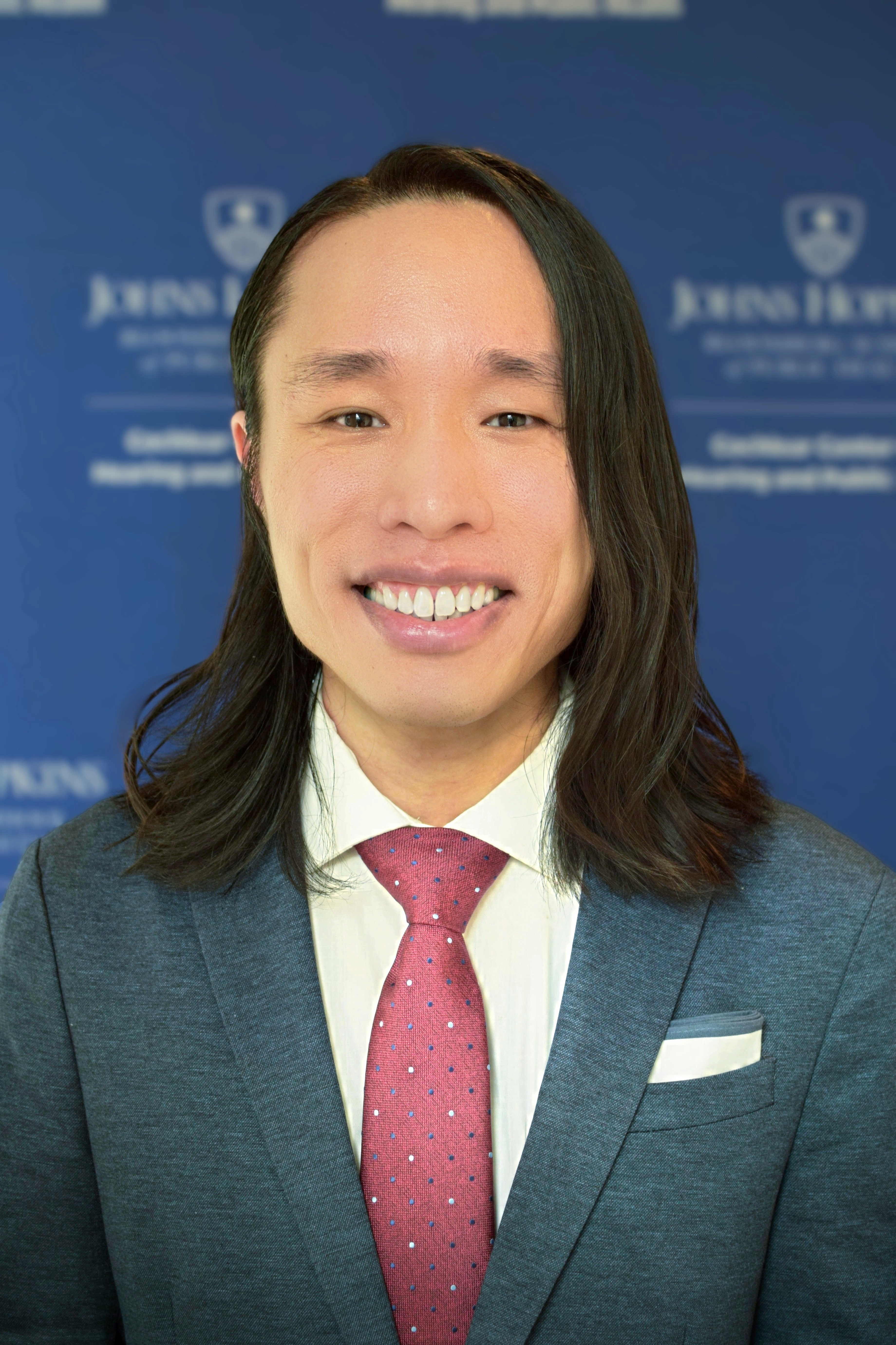
Nursing
Jonathan J. Suen is a PhD candidate at the Johns Hopkins University’s School of Nursing. He also trains at the Johns Hopkins Cochlear Center for Hearing and Public Health within the Bloomberg School of Public Health. Suen received a Ruth L. Kirschstein National Research Service Award (F31) from the National Institute on Aging (NIA/NIH) to study the roles of hearing health and social connections for supporting healthy aging in older adults. He orients his scholarship for identifying opportunities to promote health equityamong aging populations through transdisciplinary collaborations, including with older community members from Baltimore who confront social and structural barriers in accessing care. Recognized among the leading advocates for improving the accessibility of hearing care by older adults, Suen has presented across disciplines at conferences nationally and internationally. The first-ever World Report on Hearing from the World Health Organization (2021) also cited three of his publications. Suen has served on several advisory boards by invitation from leaders like the Editor-in-Chief of the American Journal of Public Health. He received annual honors twice from the Johns Hopkins Diversity Leadership Council for his roles in organizing key equity and inclusion initiatives at the university. He earned his Bachelor of Science from Boston University, where he received the Community Service Award at commencement, before completing his Peace Corps service in Kenya teaching at schools for deaf students in Kenyan Sign Language. Suen also earned his Doctorate in Audiology from Gallaudet University in Washington, DC where he was a three-time President’s Scholar.
Marah Wahbeh
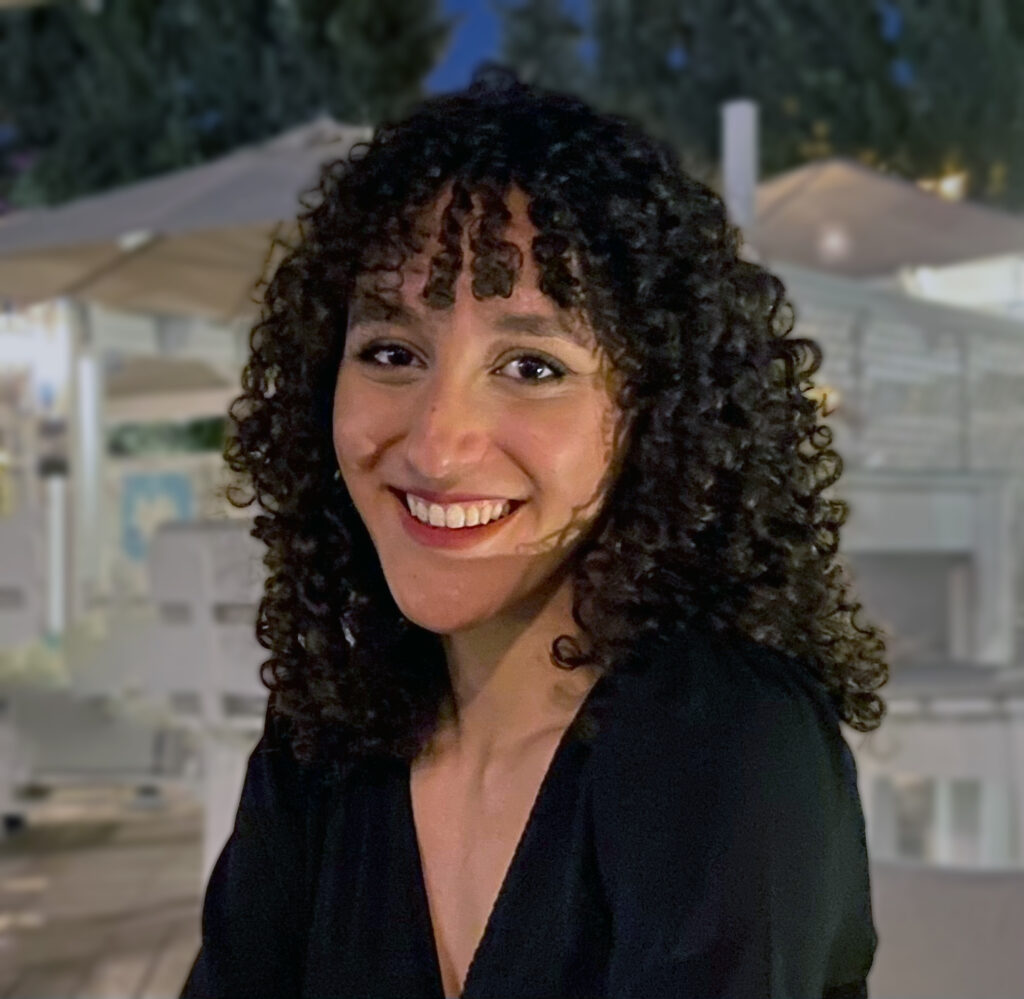
Human Genetics and Genomics
Marah Wahbeh earned her Ph.D. in Human Genetics and Genomics at Johns Hopkins University School of Medicine. Her thesis work was focused on elucidating the functional impact of some of the recently discovered genetic schizophrenia associated variants (both common and rare) by using a combination of CRISPR/Cas9 genome editing, transcriptomics, and induced pluripotent stem cells. Marah got her Bachelor of Science in Biology from Wayne State University where she graduated Magna cum laude and was inducted into Phi Beta Kappa. During her time at Hopkins, Marah was involved in student government, DEI and advocacy efforts, and science communication efforts engaging the Arabic speaking science community. This includes serving as VP of Diversity and Inclusion with the Graduate Students Association, chairing The Peer Collective committee, and serving on the Genetics Society of America’s Early Career Leadership Program’s Policy and Advocacy subcommittee where she co-organized the inaugural Multilingual Seminar Series in Arabic. Marah is pursuing a career in science policy where her goal is to engage in work that can foster her interest and expertise in science and honor her desire for a team-based work environment where she can work on projects that are fast-paced and have a direct impact on people.
Thomas Burnett
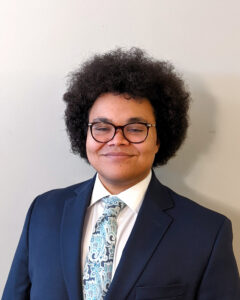
Neuroscience
Thomas Burnett is a Ph.D. Candidate in Neuroscience at Johns Hopkins University. His research aims to establish a novel model for how objects are represented in the brain through touch. Prior to graduate school, he graduated summa cum laude from the University of Maryland, Baltimore County with his B.S. in Biology. Alongside his research, his pedagogical training with the Center for the Integration of Research, Teaching, and Learning’s Teaching Academy allows him to employ equitable and culturally responsive teaching practices. Beyond the classroom, he volunteers and advocates for greater access to science education. His volunteer efforts have been recognized with the Martin Luther King Jr. Award for Community Service. Ultimately, Thomas aspires to be a leader in education and research to make science and education a more equitable endeavor.
Brent Ifemembi

Chemical and Biomolecular Engineering
Brent Ifemembi is a Ph.D. candidate in Chemical and Biomolecular Engineering at Johns Hopkins University. His research focuses on utilizing novel microfluidics for cancer diagnosis and prognosis along with isolating highly aggressive cancer cells to predict novel therapies through single-cell RNA sequencing for breast and glioblastoma patients. Brent is a Gates Millennium Scholar who received his B.S. in Chemical Engineering and Biomedical Engineering (additional major) along with a M.S in Biomedical Engineering from Carnegie Mellon University. While at Johns Hopkins University, Brent has served as the Co-Chair of the Black Graduate Student Association, organized community outreach fundraisers as the Treasurer of the Chemical and Biomolecular Engineering Graduate Student Liaison Committee, and was a member of the Planning Committee for Horizons by Hopkins, a university-wide doctoral conference for professional development. Outside of his research, Brent is passionate about entrepreneurship and has participated in the Passport to Future Technology Leadership program to gain exposure to high-level opportunities in the biotechnology industry. Ultimately, Brent aspires to lead his own company and utilize his training and education to make a tangible impact on human health.
Natalie Joe
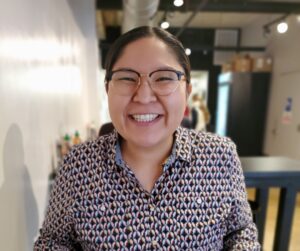
Cellular and Molecular Medicine
Natalie Joe is a Ph.D. candidate in the Cellular and Molecular Medicine program at Johns Hopkins School of Medicine. She is Diné (Navajo) and grew up on the Navajo Nation. Natalie is proud to be a first-generation college and graduate student. She graduated from Fort Lewis College with a B.S. degree in Cellular & Molecular Biology and Biochemistry. She conducted inorganic chemistry research for three years as a NIH-MARC Research Grant Scholarship awardee in Dr. Aimee Morris’ laboratory which has resulted in two co-authorships on anti-cancer prodrug syntheses. Her thesis work focuses on advancing therapeutics in triple-negative breast cancer by repurposing an antiparasitic drug. She is co-mentored by Dr. Daniele Gilkes and Dr. Gregory Riggins. Natalie has a co-authorship publication in Endocrine Related Cancer and a first-author review on breast cancer brain metastases. She received a Pre-Doctoral Ford Foundation Fellowship and will continue her work in cancer research as a 2022 NCI Cancer Prevention Fellow for her post-doctoral training. During her first year, she will attend Johns Hopkins Bloomberg School of Public Health to earn her Master’s in Public Health degree.
Natalie is dedicated to developing her mentorship and teaching skillsets. In undergrad, she was a tutor for all four years in the Native American Center, Writing Center, and Chemistry Department. During her Ph.D., she completed the Teaching Academy Certification and volunteered to co-teach science sessions to elementary students. Natalie aims to eventually direct a program to empower the next generation of Indigenous scientists.
Lea A. Marineau
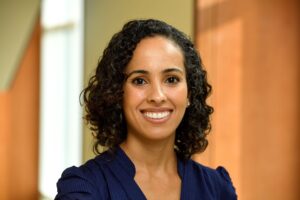
Nursing
Lea A. Marineau is a candidate for the Ph.D. in Nursing at the Johns Hopkins University School of Nursing (JHSON). She has worked as a nurse practitioner in various settings caring for people from underserved communities. Since 2014, she has worked as a nurse practitioner on the orthopaedic trauma service at the University of Maryland R Adams Cowley Shock Trauma Center. Motivated by the unmet needs of violence-impacted populations, she decided to pursue a research career. The purpose of her dissertation study is to further understand multi-level factors associated with recurrent assault-related injury among adults in Baltimore. Lea is a recipient of the Ruth L. Kirschstein National Research Service Award (F31) awarded by the National Institute on Drug Abuse. Lea has also received a Fulbright Award (2021-2022) to describe the relationship between violent injury and substance use among adults in Cape Town, South Africa. In addition to her research, Lea is dedicated to becoming an academic nurse educator. She has completed the Nurse Faculty for the Future Fellowship and became a Certified Nurse Educator. She has also worked with faculty and students at JHSON to establish best practices in teaching about race and racial health disparities and has co-authored a book chapter on antiracist pedagogy. Lea is committed to increasing enrollment and support of underrepresented students in graduate programs. She has volunteered as a tutor with Prison to Professionals (P2P) and is currently volunteering as a mentor with the Diversity Postdoctoral Alliance Committee HBCU Mentoring Program.
Gian Carlo Molina-Castro
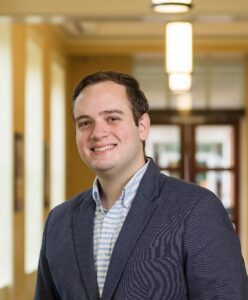
Neuroscience
Gian Carlo Molina-Castro is a 4th year neuroscience Ph.D. candidate at Johns Hopkins University (JHU), School of Medicine. An NSF GRFP Fellow, Gian’s research focuses on defining the dynamics and functional significance of remyelination in the cerebral cortex of two animal models of multiple sclerosis. As Senior Fellow at PHutures, he designs and executes the programming and strategy of this university-wide doctoral career hub, including digital content, curriculums, microcredentials, data-driven hiring events and internationally attended virtual conferences. Gian is also Co-President of Project Bridge, the largest university-wide organization focused on science communication and outreach, leading an executive board of 16 to plan and execute 11 recurrent initiatives in the Baltimore community. During 2021-2022, he is a member of the Doctor of Philosophy Board which advise the Provost about university-wide doctoral education and institutional policies and conduct Ph.D. program reviews. In addition, Gian is a strong DEI advocate and proponent and is currently leading the execution and implementation of a
2-year career exploration, professional development, and mentoring cohort-based program, and a networking panel series for underrepresented doctoral students at JHU. He was recently recognized with the inaugural 2021 JHU Career Impact Award and the 2021 JHU Diversity Recognition Award. An aspiring strategy consultant, he has also worked with local minority-owned small businesses through the Johns Hopkins Graduate Consulting Club. Gian obtained a bachelor’s degree in Cellular/Molecular Biology from the University of Puerto Rico (UPR), Rio Piedras in 2018 and a Professional Certificate in Non-Profit Management from the UPR, Mayaguez in 2015.
Gina Greenidge
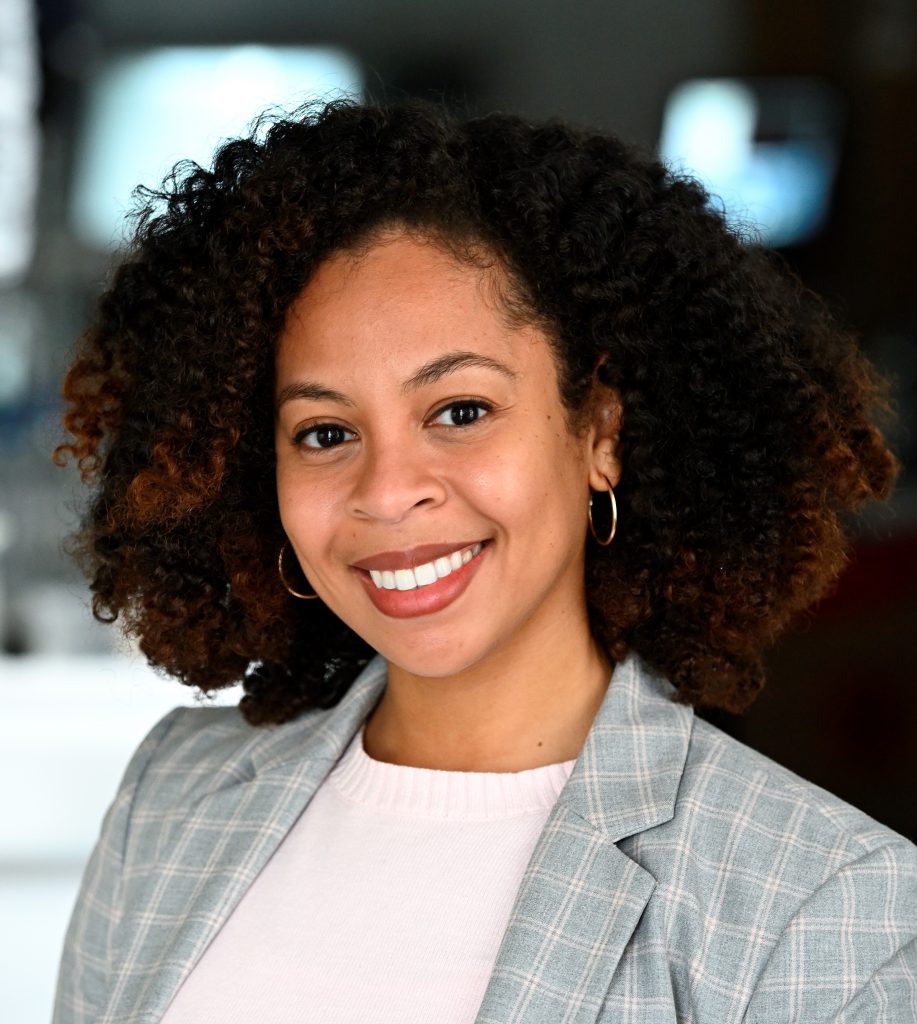
Materials Science and Engineering
Gina Greenidge earned her Ph.D. in Materials Science and Engineering at Johns Hopkins University where her research focused on the development of novel metallurgical techniques to synthesize nanostructured carbon materials. She was born in Trinidad and Tobago and migrated to the United States to attend Howard University, where she was a Capstone scholar. She graduated Magna cum Laude with Bachelor of Science degrees in Biology and Chemistry. She also received a Master of Science degree in Chemistry from her alma mater. While at Johns Hopkins University, she has been a student member of the Doctor of Philosophy Board and served on the Diversity Leadership Council where she was a strong advocate of promoting measures to increase diversity in the graduate student body. She is also passionate about mentoring and sharing science with students underrepresented in STEM and was a Materials Research Society mentor and volunteer for activities such as Family Engineering Day. Gina hopes to pursue a career in industry while continuing to advocate for diversity in STEM.
Bianca Hand
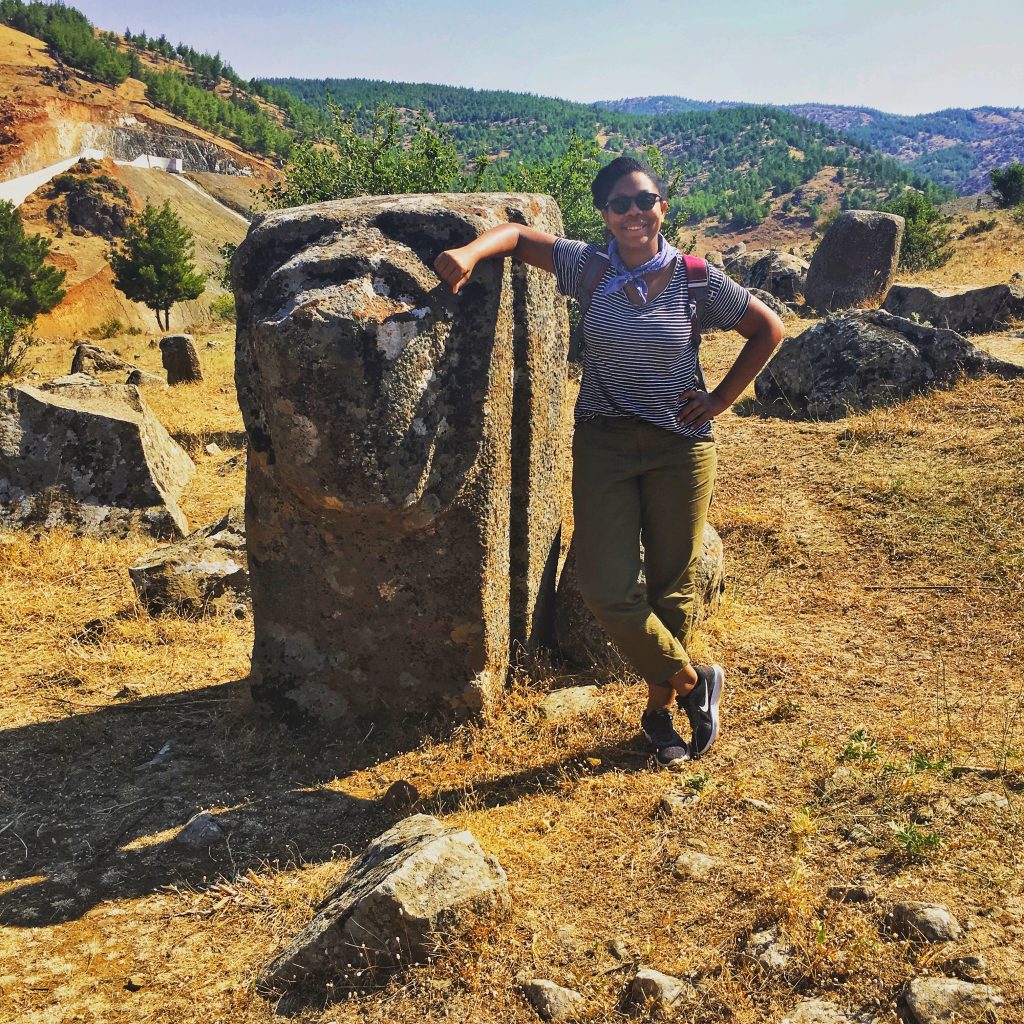
Ancient Mesopotamian Art
Bianca Hand is a Ph.D. Candidate in the History of Art Department focusing on Ancient Mesopotamian Art at Johns Hopkins University. Her research focuses on investigating questions of alterity, materiality, style, and interaction at the royal palace at Khorsabad during the reign of the Neo-Assyrian king Sargon II (721-705 BCE). She received her B.A. in Archaeology with minors in Art History and French from the College of Wooster. There, she received a National Science Foundation Research Experience for Undergraduates Award to excavate and conduct research for her senior capstone thesis. Her field work has also led her to Turkey, where she worked with the Tayinat Archaeological Project and the Hatay Archaeological Museum on the Basalt Reconstruction Project to reconstruct a monumental statue of an unidentified queen.
Bianca was shaped by her appreciation of museums in her home city of Baltimore, MD, and hopes to relate her passion for Ancient Mesopotamian Art and Archaeology to students from her community by pursuing a career in museum curation.
Dorian Jackson
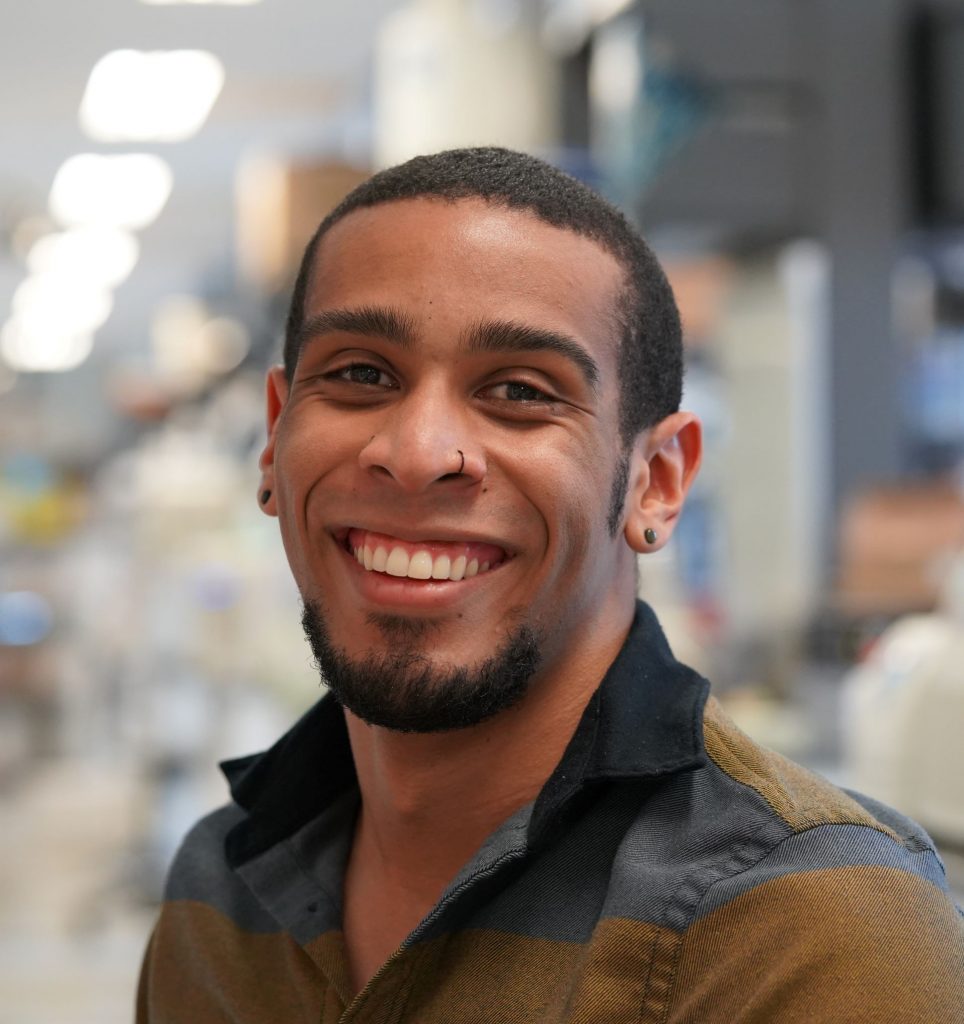
Molecular Microbiology and Immunology
Dorian Jackson is a candidate for the Ph.D. in Molecular Microbiology and Immunology at the Johns Hopkins School of Public Health when he was inducted into BGHS. His research focuses on mosquito olfaction and specifically understanding the role of olfactory sensory neurons in the molecular mode of action for a chemical compound that is currently being utilized in vector control programs as an insect repellent. Before coming to Johns Hopkins, he received a B.S. in Biological Sciences with a minor in entomology from Virginia Tech and an MPH with a concentration in infectious diseases and vaccinology from UC Berkeley. During his undergraduate training, Dorian developed a strong passion for service and vector-borne disease research which ultimately drove him to pursue a career in public health. He spent the early years of his career honing his skills as a budding public health professional through various work experiences including entomology research at the CDC in Atlanta as well as international disease surveillance work in Liberia with their Ministry of Health’s division for neglected tropical diseases. Beyond his work in public health, Dorian cares deeply about increasing diversity in STEM fields. Throughout his career, he has participated in various programs and initiatives that provide support for under-represented minorities through mentorship and professional development training. Moving forward, Dorian hopes to continue in research specifically focusing on vector-borne neglected tropical diseases in order to merge his passions for basic science and public health service.
Emerald Jenkins
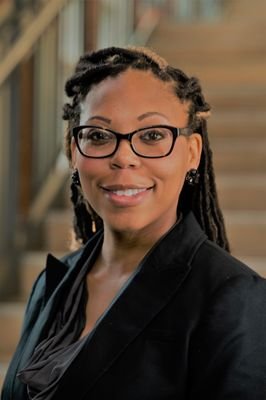
PhD-DNP in Nursing
Emerald Jenkins is a candidate for the inaugural class of the dual PhD-DNP in Nursing at Johns Hopkins University. As a caregiver, Emerald’s research focuses on meeting the needs of marginalized older adults with co-occurring dementias and physical disabilities, and their caregivers (CAPABLE-Family). Emerald is the first student from the School of Nursing to take a Computational Medicine course in the Biomedical Engineering program. She received a Bachelor of Science in Biology with a Minor in Genetics from North Carolina State University, Masters in Medical Science from Hampton University, and a Masters in Nursing from Johns Hopkins University. She hopes to utilize her education to transition her clinical practice from Psychiatric Nurse to an Adult/Geriatric Primary Care Nurse Practitioner while building a long-term research/teaching trajectory. As President of the Black Student Nurses Association, Emerald created a Medical Terminology course for the Baltimore Mayor’s Office of Employment. Emerald had a productive student record: obtaining two predoctoral fellowships through the NIH, participating in a Diversity and Justice Working Group through the Gerontological Society of America, and serving as Limited Faculty. Emerald’s long-term goals are to: cultivate cultural humility and challenge power imbalances in healthcare education/research, improve pain recognition for persons with dementia, incorporate psychiatry in primary care, and build innovative human-centered care communities for elders. As former Nursing Advocacy Leader for Maryland, Emerald believes that increasing accessibility for students from all backgrounds in higher education, and increasing diversity in the nursing workforce will improve health trajectories for aging populations, globally.
Anna J. Moyer
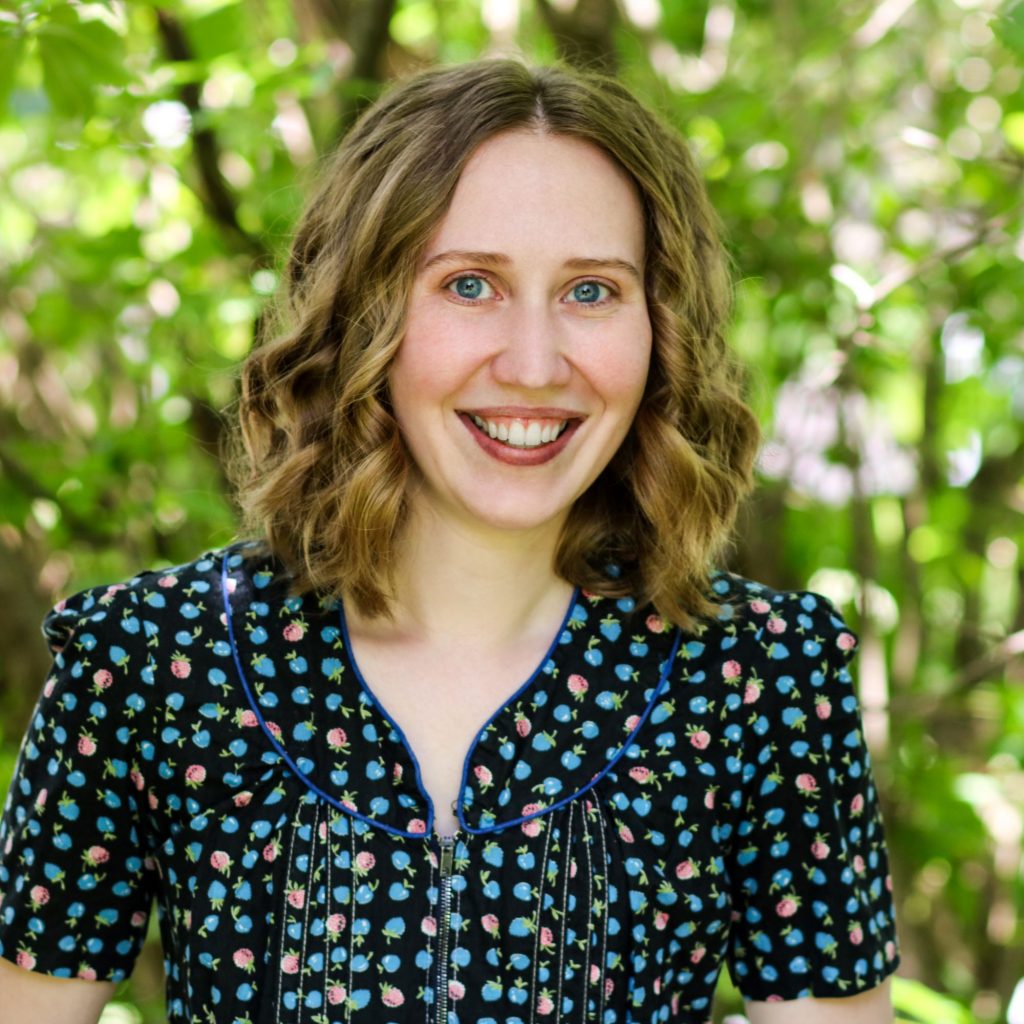
Human Genetics
Anna J. Moyer earned her Ph.D. in human genetics at the Johns Hopkins University School of Medicine. Her research focused on understanding how chromosome 21 genes contribute to abnormal brain development in Down syndrome. Before enrolling at Johns Hopkins, Anna earned B.S. and M.S. degrees in biology at the University of Alabama. Anna is committed to supporting individuals with disabilities through basic bench research and through disability advocacy. Anna co-founded the Equal Access in Science and Medicine committee to highlight the perspectives of scientists and clinicians with disabilities, chronic illnesses, and mental health conditions. She also helped to organize book clubs and film screenings celebrating the 30th anniversary of the Americans with Disabilities Act. In recognition of her research and advocacy efforts, Anna received a Ruth L. Kirschstein National Research Service Award (F31) from the National Institute of Child Health and Human Development, the Maria Del Carmen Vitery Graduate Student Award, the National Disability Employment Awareness Month Achievers Award, and the Johns Hopkins Diversity Leadership Award. In her spare time, Anna also manages a website of visual recipes and other resources to teach basic cooking skills to people with intellectual disabilities. Anna feels that her own experiences having a chronic illness and having a sibling with Down syndrome make her a better scientist and disability advocate.
Phillip James Dorsey, PhD
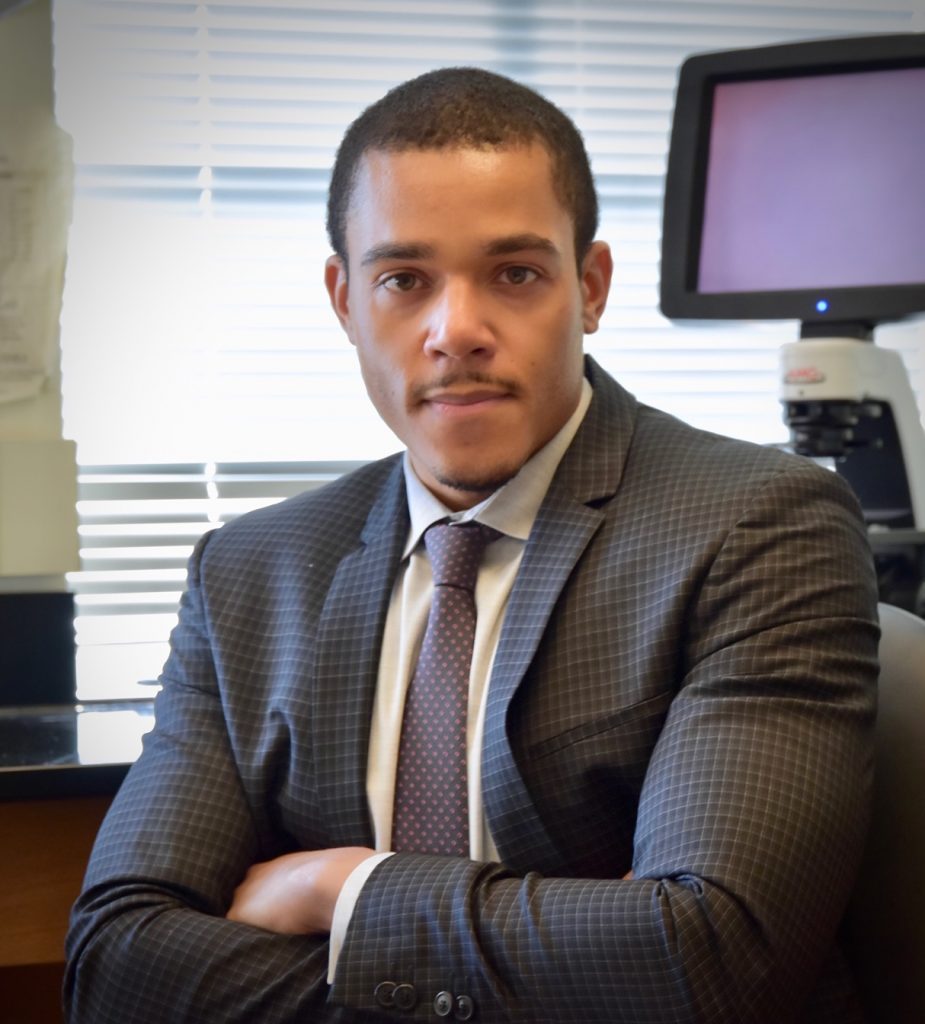
Chemical & Biomolecular Engineering
Dr. Phillip James Dorsey completed his doctoral studies in Chemical and Biomolecular Engineering at Johns Hopkins University and is advised by Professor Rebecca Schulman. His research focuses on the development of stimuli-responsive DNA-programmable biomaterials for applications including molecular diagnostics, biodefense, and drug delivery. Phillip has been recognized as a GEM (Graduate Education for Minorities) Fellow and a Whiting School of Engineering Diversity Fellow. Phil is passionate about mentoring young scientists and encouraging students from underrepresented minority backgrounds to pursue careers in STEM research. During his graduate studies, he has mentored and trained students who have gone on to pursue doctoral degrees and served as a campus tour guide and panelist for prospective graduate students groups. Phillip received a B.S.E. in Chemical & Biological Engineering from Princeton University in 2014.
Bria L. Macklin
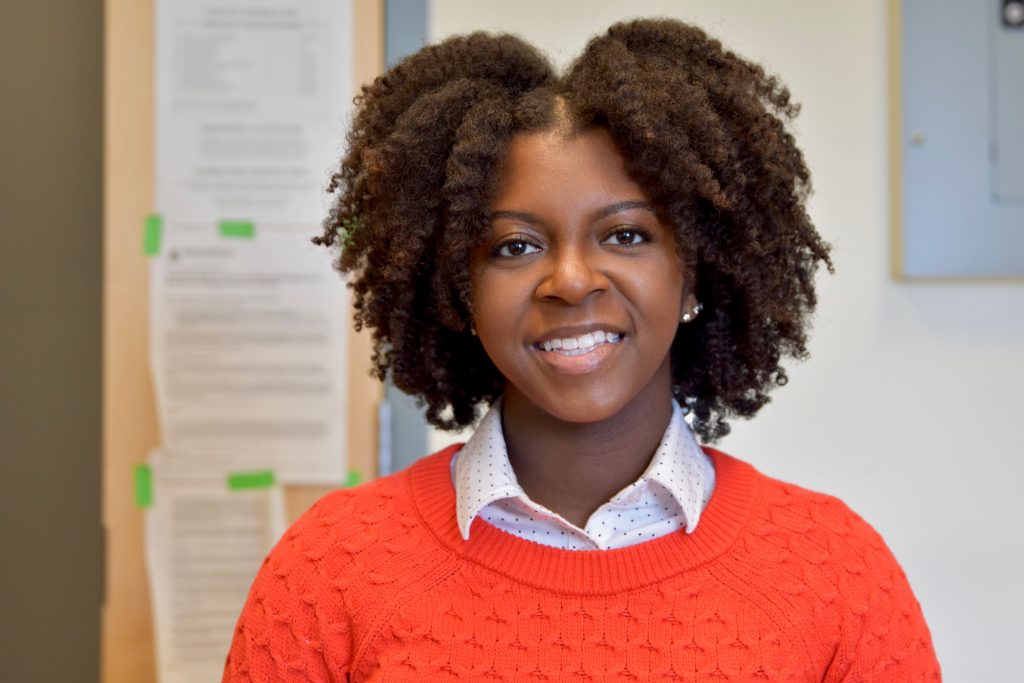
Chemical and Biomolecular Engineering
Bria L. Macklin earned her Ph.D. in Chemical and Biomolecular Engineering at Johns Hopkins University. Bria received her Bachelor of Science from North Carolina A&T State University in bioengineering. Her research focused on using stem cells to understand vascular regeneration. Towards this effort, Bria received the National Institutes of Health Ruth L. Kirschstein Predoctoral Award (F31). Bria is passionate about outreach and service and held many positions during her time at Johns Hopkins. Bria was a member of the JHU Graduate Representative Organization, The Homewood Graduate Board, and The Vice Provost for Graduate Education Student Advisory Committee. Bria was also involved in many efforts to increase diversity amongst graduate students and JHU and the academy overall, including serving as co-chair of the Black Graduate Student Association, serving on the Diversity Leadership Council, the Homewood Council for Inclusive Excellence, and a Graduate Diversity Fellow. Bria hopes to continue her career in research and make meaningful contributions to science.
Kelley N. Robinson
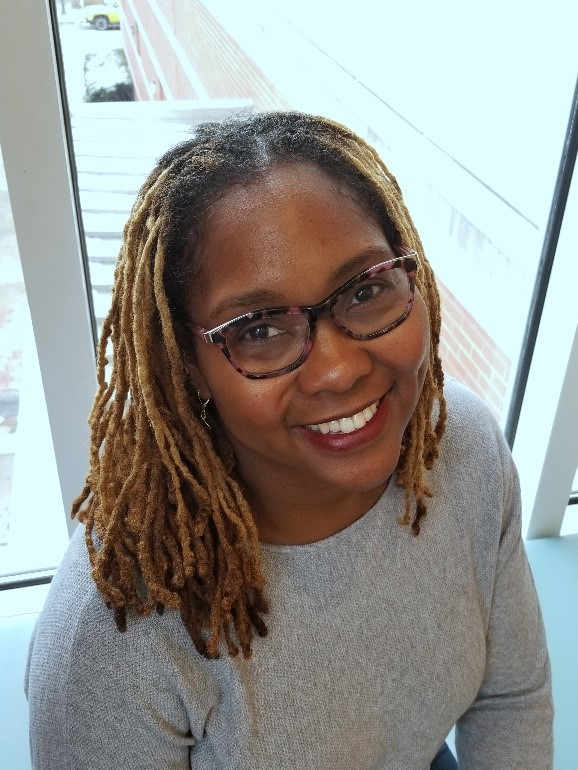
Nursing
Kelley N. Robinson is a candidate for the Ph.D. in Nursing at the Johns Hopkins School of Nursing (JHSON). Her dissertation is focused on examining the associations between housing instability experienced by women during pregnancy and maternal morbidities. She received her Master of Science in Nursing from Yale School of Nursing and a B.A. in Science from Hampton University. She was inducted into Sigma Theta Tau International Honor Society at Yale School of Nursing and is currently a fellow in the Nurse Faculty for the Future program at JHSON. Her midwifery practice over the last 15 years has included full-scope ob-gyn care in a variety of settings, from private practices to birth centers, and she has extensive experience in maternal/newborn care under both normal and higher risk conditions. Prior to her career as nurse-midwife, Kelley was a clinical faculty at JHSON using her extensive expertise in teaching public health and childbearing family nursing courses. She has a strong passion for improving health outcomes for women in global settings and has traveled to Haiti to participate in short mission trips in her earlier years of practice. Kelley continues to work for improvements in women’s health through her dissertation research and is committed to promoting equal access to quality women’s healthcare from birth to senescence. She currently practices at Baltimore Medical Systems caring for underserved women and voluntarily provides gynecological services on the Baltimore City Department’s Reproductive Health Mobile Van in downtown Baltimore in the nighttime entertainment district.
Ashley N. Stewart
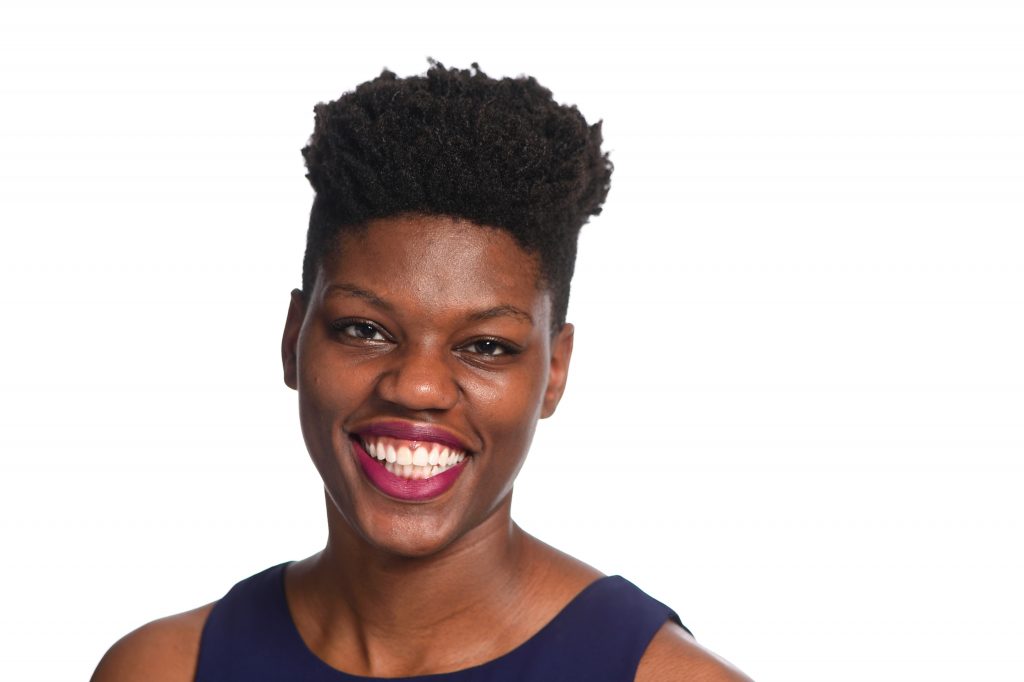
Cellular and Molecular Physiology
Ashley N. Stewart earned her Ph.D. in Cellular and Molecular Physiology with a concentration in metabolism and biochemistry at Johns Hopkins School of Medicine. Her research focused on understanding how post-translational modifications regulate the structure and function of secreted proteins known as CTRPs, which regulate systemic lipid and glucose homeostasis. Beyond her research, she applied her scientific training through a Business Development Fellowship at Johns Hopkins Technology Ventures. There, she helped establish partnerships between pharmaceutical industry partners and Johns Hopkins faculty by proposing research projects based on mutual interests. Through linking industry partners to academic researchers, Ashley helped turn basic and translational science into real-world applications. During her tenure as president of the Biomedical Scholars Association, Ashley worked to create a more inclusive environment at her institution through a collaborative effort to enhance recruitment of underrepresented minority students across the Johns Hopkins School of Medicine, School of Public Health, and School of Nursing. Within the Baltimore community, she volunteered on the executive board of Shine Foundation, a nonprofit organization that helps survivors of domestic abuse develop financial independence. There, in her role as Partnership Director, she collaborated with local shelters to organize workshops for their clients. Ashley aims to use her skills in partnerships, business development, and biomedical research to solve complex, interdisciplinary problems in the biotechnology industry.
Elmer A. Zapata-Mercado
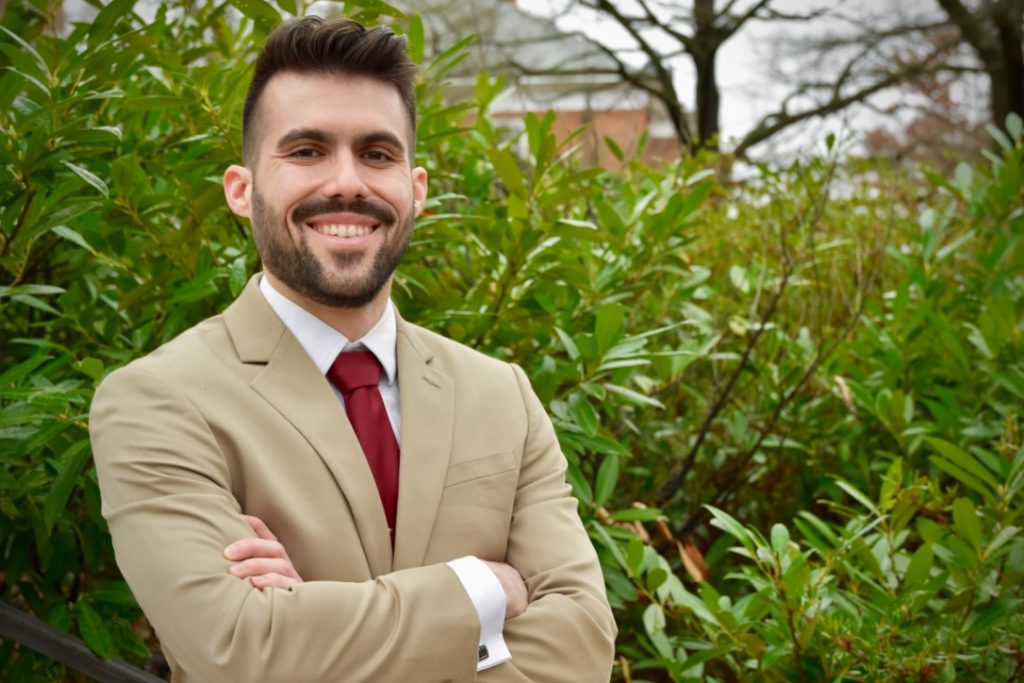
Biophysics
Elmer earned his Ph.D. in the Program in Molecular Biophysics (PMB) at Johns Hopkins University. His research focused on studying the thermodynamics of lateral interactions of receptor proteins in the plasma membrane of the cell, by employing fluorescence-based techniques. Elmer was the recipient of the Francis D. “Spike” Carlson fellowship, given to outstanding students in PMB. Elmer also completed the requirements to receive the certificate from the Teaching Academy for Preparing Future Faculty. He graduated with honors in Chemical Engineering, and Chemistry, from the University of Puerto Rico – Mayagüez Campus. Elmer has always been interested in obtaining a faculty position, where he could incentivize other minority students to pursue graduate degrees. He also aspires to help bridge the gap between the scientific community and the government through science policy work.
Jawara Allen, PhD
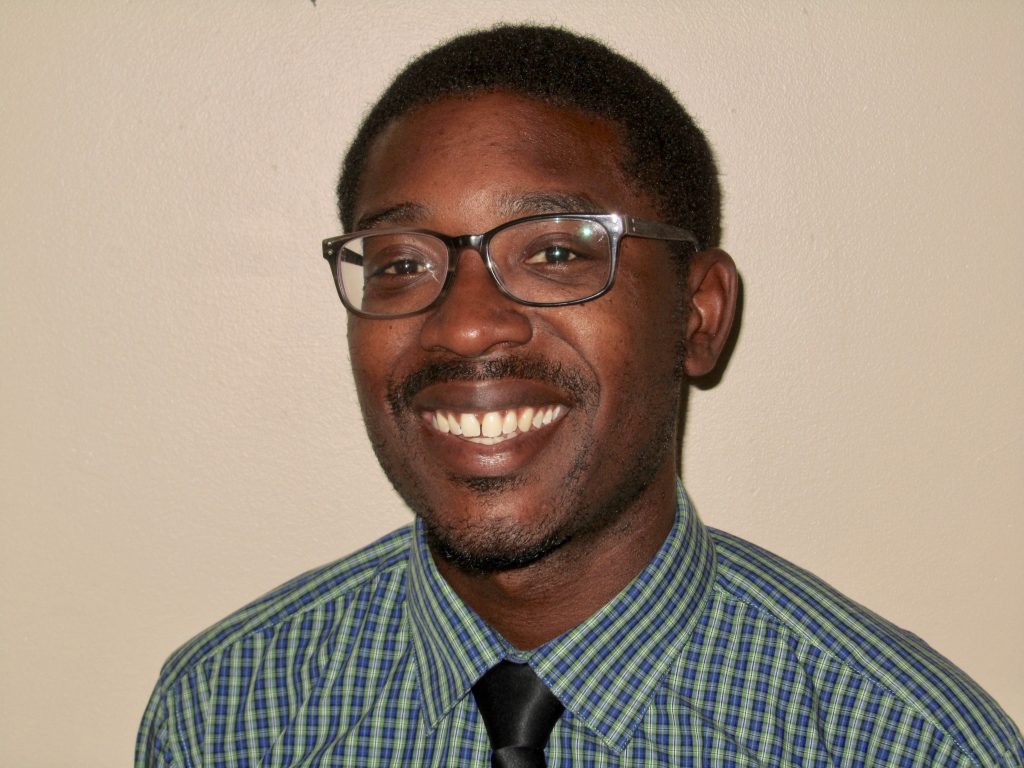
Biochemistry, Cellular and Molecular Biology
Dr. Jawara Allen earned the combined MD and Ph.D. in biochemistry, cellular and molecular biology at the Johns Hopkins School of Medicine. His research focused on elucidating how Bacteroides fragilis, a gut microbe found in up to 60% of healthy individuals, contributes to the development of colorectal cancer. Jawara received a bachelor of science in biology from Duke University with a focus on genome sciences and policy. As a Reginaldo Howard Memorial Scholar, he organized lectures and events centered around issues of racial disparities and inequality. Afterward, he worked at the National Institutes of Health as an NIAD INRO fellow and learned more about health disparities as a part of the NIH academy. Jawara was recognized as an HHMI EXROP scholar and an HHMI Gilliam Fellow. Throughout his time at Johns Hopkins School of Medicine, Jawara worked with various organizations to mentor and advocate for individuals underrepresented in science and medicine including MERIT, Thread, the Gertrude Stein Society, the Student National Medical Association, and the Post-baccalaureate Research Education Program. Jawara plans to pursue a career as a physician scientist, working on issues related to infectious diseases in both the clinic and the laboratory.
Blaine M. Connor
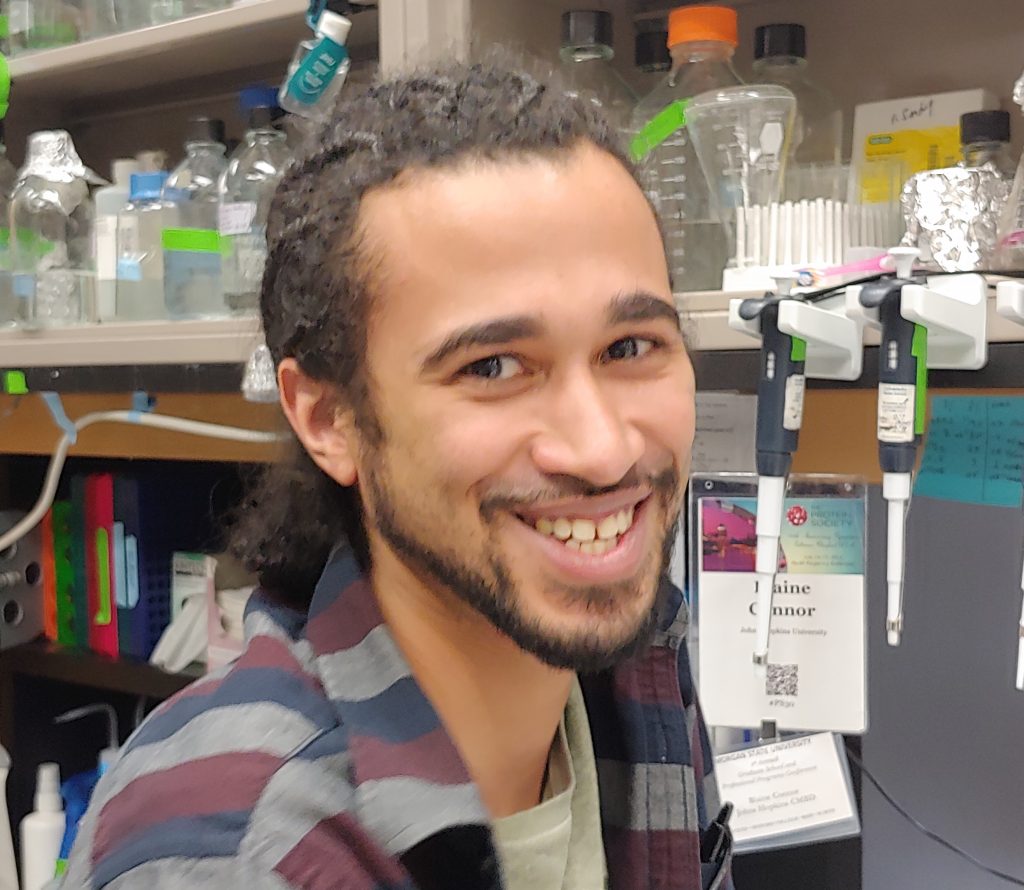
Cell, Molecular, Developmental Biology, and Biophysics
At the time of induction, Blaine M. Connor was a Ph.D. candidate in biology with a focus on neurobiology of the sympathetic nervous system. His research addressed fundamental questions of how essential signaling proteins are transported to their sites of action in polarized sympathetic neurons during nervous system development. Blaine is a recipient of the Nathan Boggs Memorial Fellowship for underrepresented graduate students with academic merit, as well as the Victor Corces Teaching Award for outstanding teaching as a teaching assistant at Johns Hopkins University. Blaine received a Bachelor of Science in biochemistry from Kutztown University of Pennsylvania, where he graduated Magna cum Laude. Blaine has an insatiable curiosity for science and is humble about learning. He served as a committed mentor who genuinely enjoyed applying his time and effort toward teaching junior students; he is specifically committed to advocating for diversity in STEM fields and identifying avenues to increase opportunities for young, underrepresented students in these disciplines. Blaine volunteered his time toward student recruitment at undergraduate-focused conferences such as the Annual Biomedical Research Conference for Minority Students, and professional development conferences at local universities in Baltimore. Ultimately, Blaine aspires to run his own research group one day, working to better understand how neuro-metabolism influences animal physiology.
Sabianca Delva

Nursing
Sabianca Delva earned her Ph.D. at the Johns Hopkins University School of Nursing. She is also a recipient of the Ruth Kirschtein F31 fellowship grant from the National Institutes of Health to fund her doctoral work. Her research focused on using mobile health technologies such as Fitbits and smartphone apps for management of cardiovascular diseases in Latinos using a community participatory approach. This process was firmly rooted in the belief that engaging the community will be the key to developing viable solutions to the ever-evolving challenges in health care. Sabianca has years of clinical experience and has witnessed firsthand the hardships immigrants undergo navigating the US healthcare system. The non-English speaking patients often experience structural, cultural and linguistic barriers when accessing the health care system, especially for self-care management of cardiovascular diseases. Because of her commitment to helping the Latino community, Sabianca received several accolades including poster awards at the annual Hopkins Diversity Symposia and the Center for Disease Control Latino Health forum. Sabianca was also an active leader on campus and served as the Newsletter Chair for the Sigma Theta Tau International Nursing Honor Society. She was also Vice President and President of the Ph.D. Student Association, where she helped to organize professional development programs and promote collegiality among her peers. Sabianca paid it forward while at JHU by mentoring high school students from underrepresented backgrounds in Baltimore City. Her excellent academic record, dynamic leadership, and contribution to the community made her an ideal candidate for the Bouchet Society.
Sara Haile
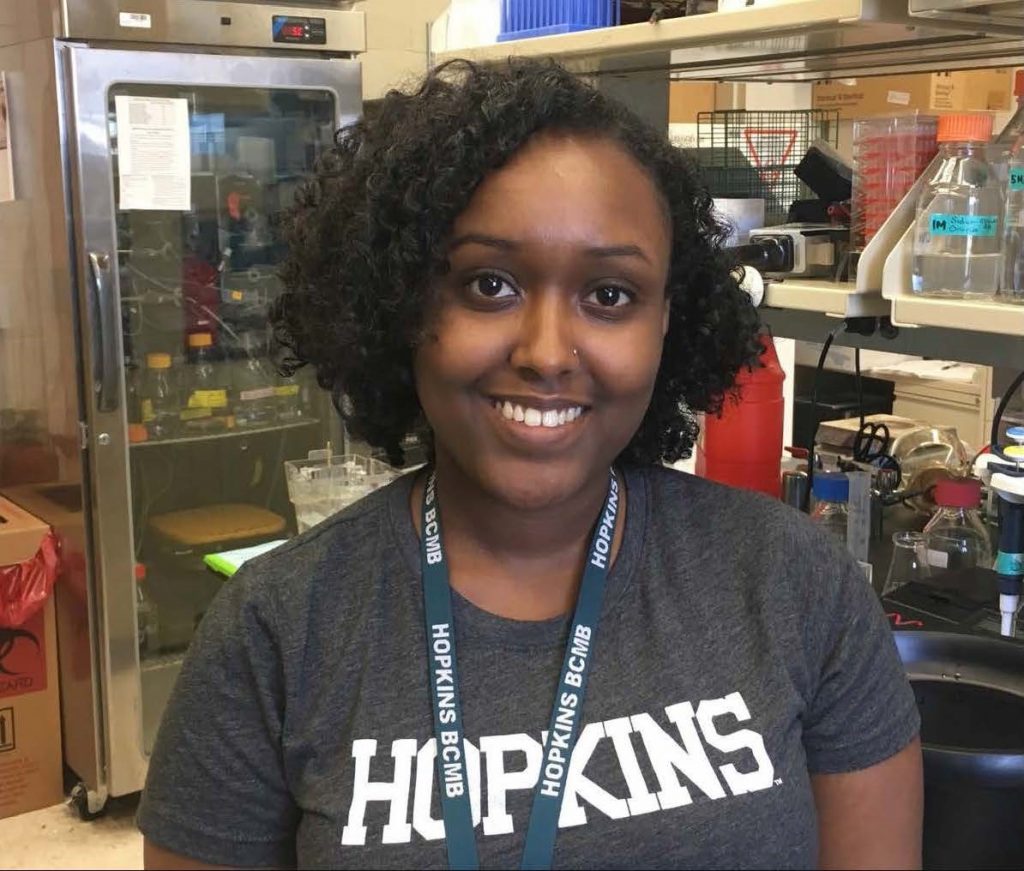
Biochemistry, Cellular and Molecular Biology
Sara Haile grew up in Addis Ababa, Ethiopia and moved to San Jose, California when she was 15. The cross-world move was a culture shock in many ways, including realizing the importance and power of seeing people who look like her being successful. While working on her degrees in Bioengineering and Molecular, Cell and Developmental Biology at the University of California, Santa Cruz (go banana slugs!), Sara developed her two passions: structural biology research and encouraging those underrepresented in science to enter and be successful in STEM. Her interests were fostered by the STEM Diversity Programs, where she received basic scientific training but more importantly, was provided with an environment of driven people with similar backgrounds. When Sara was looking for graduate programs, she sought out a similar atmosphere. Upon arriving at Hopkins, she joined the Biomedical Scholars Association (BSA), the largest student group that supports underrepresented minority graduate students. BSA provided her with a space and community where she felt comfortable expressing herself and discussing things like imposter syndrome and stereotype threat. Later, in her role as president for the BSA Sara worked hard to ensure that underrepresented minority graduate students felt comfortable and supported to succeed.
Ayah Nuriddin
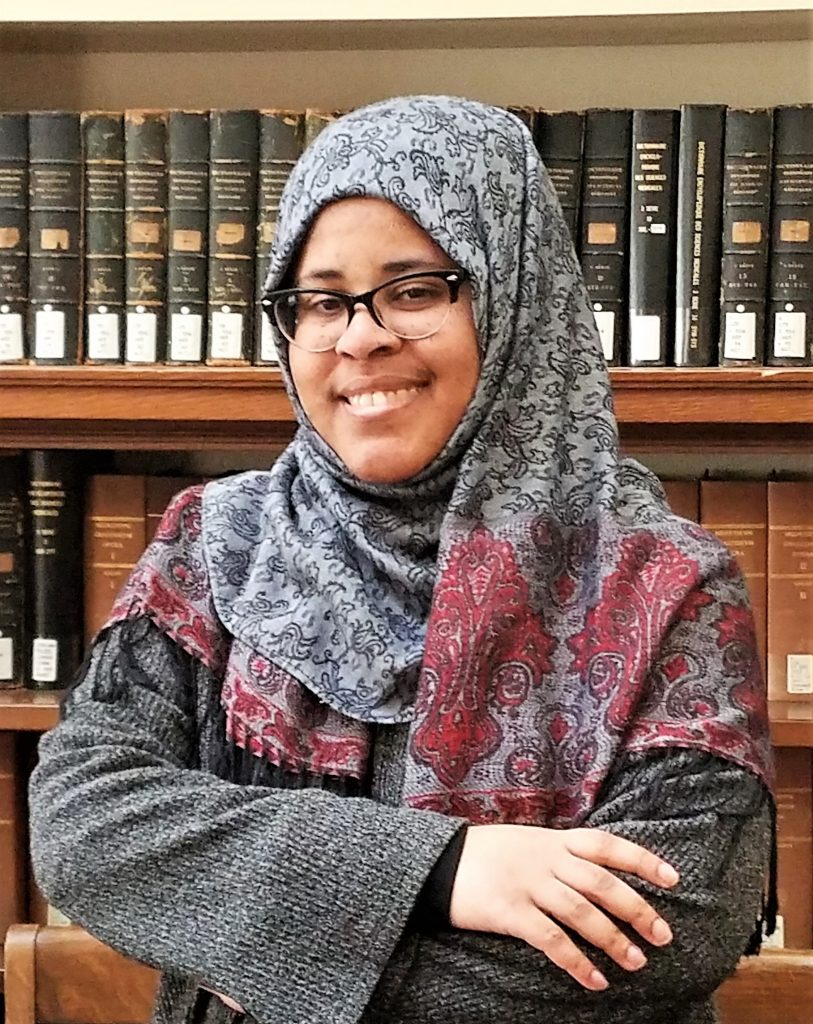
History of Medicine
Ayah Nuriddin earned her Ph.D. in History of Medicine at Johns Hopkins University. She served as Dissertation Fellow at the Consortium for the History of Science, Technology, and Medicine (CHSTM). She was a Graduate Fellow in the Center for Medical Humanities and Social Medicine at Johns Hopkins University in 2017-18. She holds a Masters in History and Masters of Library Science (MLS) from the University of Maryland, College Park. Her dissertation, entitled “Liberation Eugenics: African Americans and the Science of Black Freedom Struggles, 1890-1970,” analyzed African American engagement with eugenics, hereditarian thought, and racial science as part of a broader strategy of racial improvement and black liberation. Ayah aspires to use her scholarship and activism to create space for diverse voices and experiences in the academy.
Maria del Carmen Vitery (Posthumous Inductee)
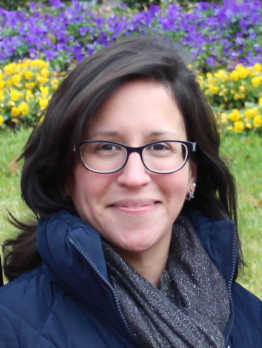
Cellular and Molecular Physiology
Maria del Carmen Vitery was born in Peru and migrated to the U.S. as a teen. She obtained her B.S. in Biochemistry and Molecular Biology with honors from the University of Maryland Baltimore County and her M.S. in Biotechnology from Johns Hopkins. Maria matriculated in the Cellular and Molecular Physiology program at Hopkins in 2016, where she was a Ruth L. Kirschstein National Research Service awardee and made seminal contributions to the understanding of novel chloride channels. Maria’s citizenship and service were exemplary. She was a volunteer on medical missions with the Peruvian American Medical Society, Vice President of Policy for the Hopkins Graduate Student Association, Public Relations Chair of the Biomedical Scholars Association, and Secretary of the Hopkins chapter of the Society for Advancing Chicanos and Native Americans in Science. Maria selflessly devoted multiple hours each week to children and teens in the Baltimore community, as a mentor for high school students facing significant struggles, teaching science and art to 3rd through 5th grade students, as a child life hospital volunteer, and teaching dance, an activity for which she herself was tremendously skilled. Maria brought joy and compassion to others not only through service, but also in all her daily interactions. Maria’s peers and colleagues remember her as an exceptional scholar, an outstanding leader, a dedicated citizen, and an even greater human being. Her goodness was contagious and she was a light on the mountain top, shining brighter and brighter, who will keep shining in everyone’s hearts.
Office of the Provost
265 Garland Hall
3400 North Charles Street
Baltimore, Maryland 21218
Phone: (410) 516-8070
Fax: (410) 516-8035
provost@jhu.edu
